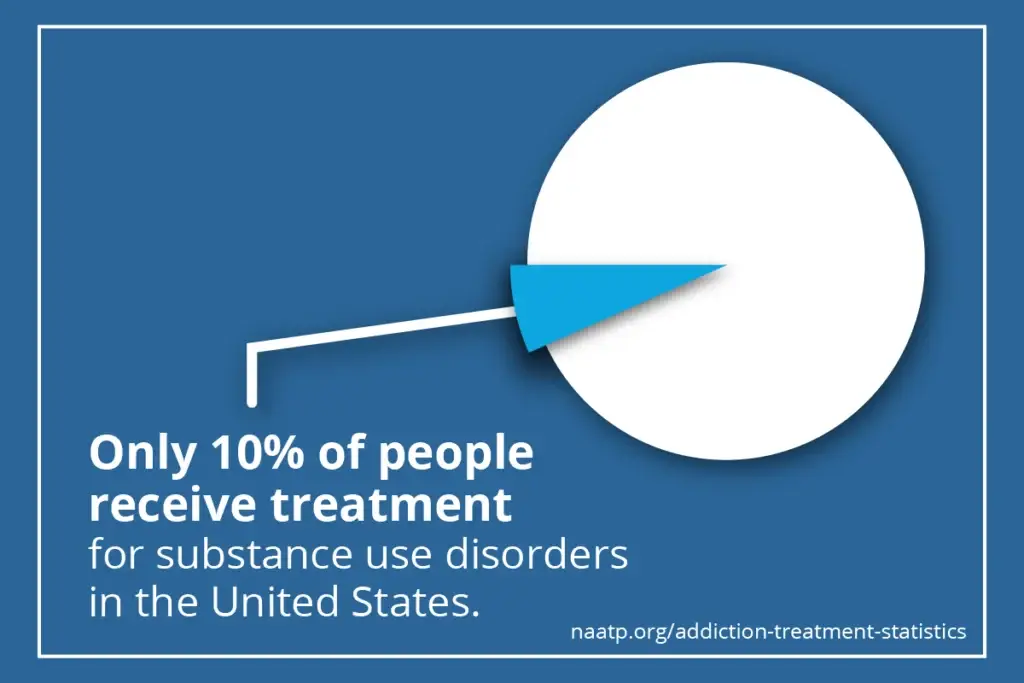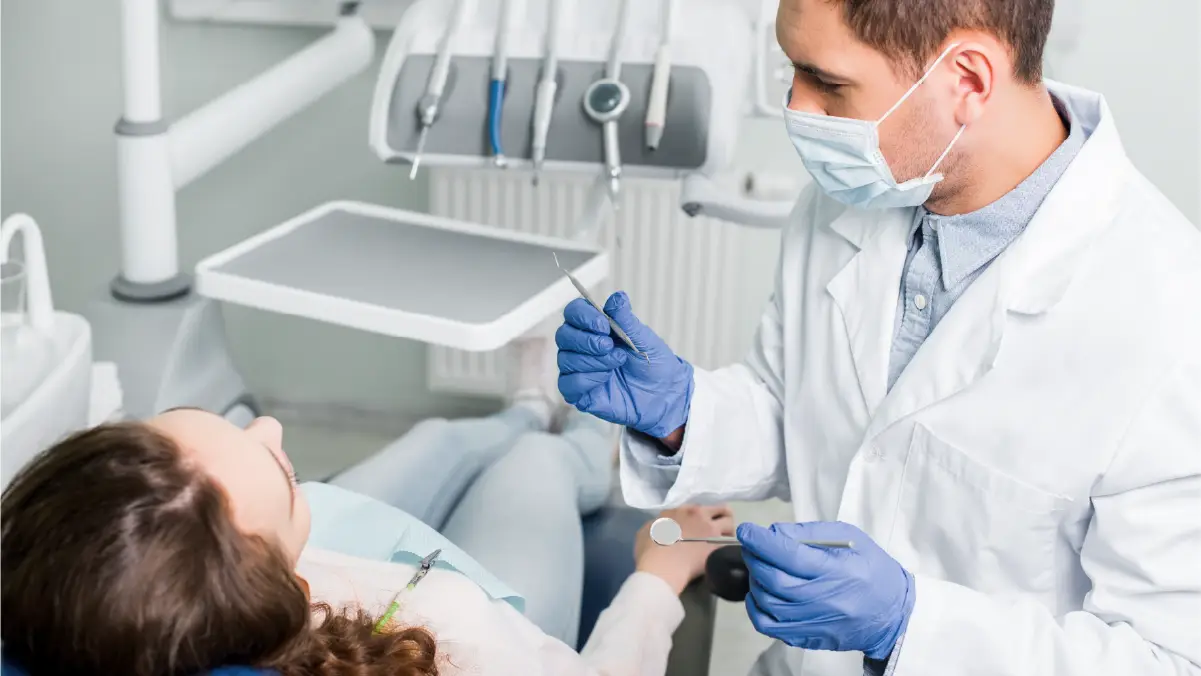Treatment for Addiction and Mental Health
Other Categories

Building Foundations for Lasting Recovery
Addressing substance use and mental health conditions requires more than symptom management. It’s about identifying underlying issues, developing sustainable coping skills, and creating a more stable lifestyle. Many people who enter treatment have developed patterns of behavior that may have helped them cope in the past but are now causing harm. Treatment provides the space to recognize these patterns and replace them with healthier strategies.
Consistency and commitment are essential in treatment. Progress isn’t always linear, so there may be setbacks or moments of doubt, but having a strong support system and guidance and medical support for a team of licensed professionals makes it easier to stay on track and achieve lasting change.
Only about 10% of people with substance use disorders in the United States receive treatment—so if you’re struggling, don’t be afraid to reach out.

Initial Assessments
Treatment starts with an initial assessment, which helps create a personalized plan based on your specific needs and goals.
Here’s what is typically covered during this assessment:
- Medical history: A review of your health to identify any physical conditions or past treatments that might affect your care.
- Substance use: Understanding your relationship with substances, including how long it’s been a concern and its impact on your life.
- Mental health: Addressing any mental health challenges you may be facing, such as anxiety, depression, or trauma.
- Lifestyle and daily routine: How substance use or mental health issues are affecting your daily life and relationships.
- Co-occurring conditions: Checking for any other conditions that may need additional focus, such as dual diagnoses.
- Services
Addiction and mental health challenges require a well-rounded approach since they involve both physical and emotional struggles. These services focus on managing withdrawal and stabilizing mental health while also offering continued support to support long-term healing and prevent relapse.
Detox
A medically supervised detox program helps manage the physical withdrawal symptoms that can occur when stopping substance use. The process ensures that patients are safely supported as their body clears the substance from their system, setting the foundation for further treatment.
Therapy
Therapy is a key part of treatment, helping patients explore the underlying causes of their addiction and mental health struggles. It provides a safe space to work through emotions, develop healthier coping mechanisms, and build stronger relationships. Therapy can take place in individual, group, or family settings and allows for personalized care and a sense of community support.
Medication Management
Management: For addiction, Medication-Assisted Treatment (MAT) can help reduce cravings and withdrawal symptoms, making recovery more manageable. For mental health conditions, medications like antidepressants or mood stabilizers may be prescribed by a licensed professional to help regulate mood, reduce anxiety, and stabilize mental health. Medication management ensures that the patient receives the correct prescriptions and dosages, with regular monitoring to adjust as needed for maximum effectiveness.
Holistic Care
Alternative therapies, such as yoga, meditation, art therapy and mindfulness practices are often incorporated into treatment to help patients reconnect with themselves and reduce stress. These therapies encourage self-reflection, improve mental clarity, and promote relaxation, all of which are valuable in supporting the recovery process and overall mental health.
Ongoing Support
Aftercare services may include ongoing therapy, participation in support groups, and relapse prevention planning. These programs help individuals stay connected to a community of people who understand their challenges and can offer encouragement.
- Evidence-Based Approaches
Effective addiction and mental health treatment relies on methods that are backed by research and proven to work. These approaches help patients understand the underlying causes of their struggles, manage symptoms, and develop healthier coping strategies.
Cognitive Behavioral Therapy (CBT)
Helps patients recognize and change negative thought patterns and behaviors that affect their mental health and addiction. It helps reframe thinking, improve decision-making, and develop healthier coping skills.
Dialectical Behavior Therapy (DBT)
Teaches skills for emotional regulation, stress management, and improving relationships, helping individuals cope with emotional challenges in healthier ways.
Eye Movement Desensitization and Reprocessing (EMDR)
Helps process traumatic memories by using guided eye movements, reducing the emotional weight of past trauma and helping individuals move forward without being stuck in those experiences.
Trauma-Focused Therapies
Focuses on processing trauma, often a root cause of addiction and mental health struggles, in a safe, supportive environment, allowing individuals to heal and regain control over their lives.
Mindfulness-Based Cognitive Therapy (MBCT)
Blends CBT with mindfulness to help individuals become more aware of their thoughts and emotions, preventing relapse and reducing depression by teaching non-judgmental observation and mindful responses.
- Treatment Options
Each treatment option offers different levels of support and structure, allowing individuals to choose the path that best suits their needs and lifestyle.
Residential
Residential treatment is the most intensive option, where you live on-site and receive round-the-clock support. You’ll get a mix of therapy, medical care, and counseling in a structured environment, with no distractions from everyday life. This is ideal for those who need full focus on their recovery and a safe place to start fresh.
Partial Hospitalization Program (PHP)
PHP is like residential treatment, but you go home at night. During the day, you’ll take part in intensive therapy sessions, including group and individual counseling. It’s a good option for those who need intensive care but can manage being away from a residential setting at night.
Intensive Outpatient Program (IOP)
IOP gives you the flexibility to keep up with your daily life while still getting plenty of support. You’ll attend several therapy sessions a week, with both group and individual therapy. It’s a great choice for those who need a higher level of care but still want to stay engaged in work, school, or family life.
Outpatient (OP)
Outpatient treatment is the most flexible option. You’ll attend therapy sessions once or twice a week while continuing your regular routine. This is a good choice for people who need ongoing support but don’t require intensive treatment or for those who’ve completed a more intensive program and want to keep the progress going.
- When to Seek Treatment
It’s not always easy to tell when it’s time to ask for help, especially if you’ve been struggling for a while. If you’re feeling uncertain, it can help to reflect on how you’re coping day to day and how it’s affecting your life.
Recent Insight: A new study from The Haven Detox reveals that while millions use substances like alcohol, cannabis, and hallucinogens, only a small percentage seek treatment—highlighting the growing gap between use and help-seeking.
Here are some signs that may indicate it’s time to reach out for professional treatment.
- Feeling overwhelmed by emotional or mental health issues (anxiety, depression, etc.)
- Experiencing negative consequences at work, school, or in relationships
- Using substances or engaging in behaviors to cope with stress, trauma, or difficult emotions
- Feeling isolated or disconnected from friends, family, and activities
- Engaging in risky behaviors, such as driving under the influence or self-harming
Yes, Treatment Here Is Covered by Insurance
Don’t see your insurance? Don’t worry, most plans cover treatment here. Any costs to you is as low as possible – sometimes even zero.
100% Confidential
16 treatment related Articles


Other Categories Alcohol Use Mental Health Drug Use Recovery Key Findings from the Study Only

Other Categories Alcohol Use Mental Health Drug Use Recovery Trends in Substance Treatment America’s substance

Other Categories Alcohol Use Mental Health Drug Use Recovery Ketamine therapy has become famous for

Other Categories Alcohol Use Mental Health Drug Use Recovery Cognitive Behavioral Therapy (CBT) and Dialectical

Other Categories Alcohol Use Mental Health Drug Use Recovery Mental health and substance abuse recovery

Other Categories Alcohol Use Mental Health Drug Use Recovery Dual diagnosis and co-occurring disorders are

Other Categories Alcohol Use Mental Health Drug Use Recovery Benzodiazepines, commonly prescribed for anxiety and

Other Categories Alcohol Use Mental Health Drug Use Recovery In 2022, the Food and Drug

Other Categories Alcohol Use Mental Health Drug Use Recovery Ketamine therapy, a novel psychiatric approach,

Other Categories Alcohol Use Mental Health Drug Use Recovery Suboxone is a prescription medicine used

Other Categories Alcohol Use Mental Health Drug Use Recovery Medication-assisted treatment (MAT) has emerged as

Other Categories Alcohol Use Mental Health Drug Use Recovery Work can sometimes become a rowdy

Other Categories Alcohol Use Mental Health Drug Use Recovery Drug abuse has a significant impact

Other Categories Alcohol Use Mental Health Drug Use Recovery In medical detox, vital nutrient IV

Other Categories Alcohol Use Mental Health Drug Use Recovery Nicotinamide adenine dinucleotide (NAD) IV therapy

Other Categories Alcohol Use Mental Health Drug Use Recovery Sobriety and abstinence are different terms
Have Questions? Let’s Talk!
Let’s talk about what’s going on — no judgement. (We’ve been there before ourselves). No one will know you inquired and there is no commitment to call.
24/7 Support
Need someone to talk to? We’re always here—day or night.
No Commitment
Ask questions, get guidance—no pressure, no obligation.
100% Private
Your story stays with us. Confidential support, always.